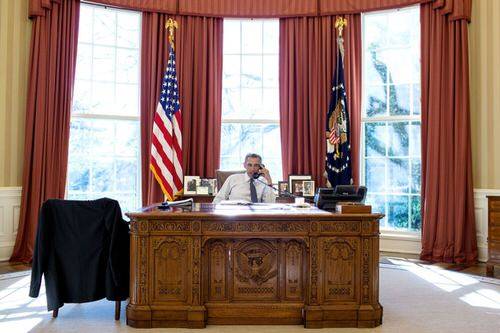
The White House’s forthcoming online-privacy bill will would place restrictions on the handling of consumer data while giving more power to the Federal Trade Commission to enforce those restrictions, Politico reported.
The current draft would require Internet companies like Google and Facebook—as well as online advertisers and mobile app developers—to get user permission before collecting or sharing personal information. The report also says the FTC would gain the power to levy fines against companies that violate online privacy laws.
Earlier this month, the White House said it will introduce a version of its Consumer Privacy Bill of Rights by February 26:
Online interactions should be governed by clear principles … that look at the context in which data is collected and ensure that users’ expectations are not abused.
Related online-privacy legislation the Obama administration intends to propose includes the Student Digital Privacy Act, a measure based on California legislation that would prevent companies from selling student data for non-educational purposes.
But critics said the bill, which will face a hostile reception in the Republican Congress, will need to stake out some serious enforcement powers.
“It’s encouraging that the Obama administration is proposing more privacy reforms,” Mark. M Jaycox, legislative analyst for the Electronic Frontier Foundation, said in an email interview. “But they can’t be hollow bills.”
For instance, he noted:
EFF supported the California bill that the administration is basing its student privacy proposal on. But just this morning, Education Week reported the administration bill does not contain an explicit prohibition on vendors amassing profiles of K-12 students for non-educational uses.
Jaycox added that the student-privacy bill also won’t prohibit companies from collecting information in an educational context and then using it to target advertising to students elsewhere.
Critics like Jaycox argue that weaknesses in the student privacy bills could foreshadow similar problems with the consumer privacy bill. Outsiders, however, haven’t yet seen the language of either bill firsthand. Politico attributed its reporting to sources that offered a limited reading of the draft legislation.
Photo courtesy of the White House

















